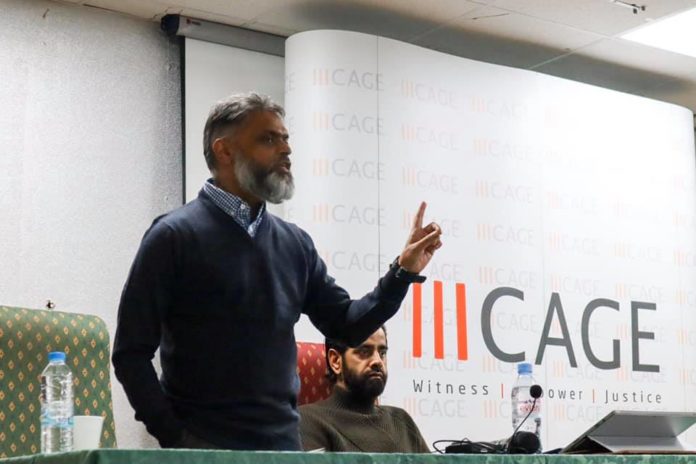Former Guantanamo Bay prisoner and CAGE Outreach Director Moazzam Begg has won back the right to his British passport after he launched a legal challenge in January.
The Home Office concession now means that Begg is free to travel after eight years of confinement to UK shores.
Begg’s application for a new passport was rejected in September 2021, even though a terrorism prosecution relating to his time in Syria collapsed in 2014, after which police said they accepted he was innocent.
His legal challenge was prompted by a Home Office blunder when Begg was issued with a passport only for it to be cancelled within a month.
The Home Office letter notifying him of this decision was dated 2017 and addressed to a completely unrelated woman in another city whose details matched someone convicted for passport fraud.
The Home Office has the power to arbitrarily deny a person a passport, effectively restricting their freedom of movement. But the judicial review sought to challenge this delay.
Moazzam Begg said: “It’s been almost a decade since I was able to travel outside the UK. A passport is more than just a travel document, it’s literally the strongest proof of one’s identity. When that is arbitrarily denied by the state it is essentially saying ‘you don’t really belong.’
Subscribe to our newsletter and stay updated on the latest news and updates from around the Muslim world!
“In my experience, however, the state often abuses these extraordinary powers it has given itself and places itself above its the law when accountability becomes inconvenient and embarrassing.
“I’ve had my passport revoked and reissued three times in the past 17 years. I don’t know if this is the last time, but I do know my fight to hold the state accountable doesn’t end with a passport. It’s just a new beginning. I thank all those who have supported me and CAGE in yet another win against the odds.”
Begg was arrested in February 2002 in Pakistan, handed to U.S. forces, and detained at Bagram in Afghanistan before being moved to Guantánamo Bay. He was released without charge in 2005.
The trips to Syria took place in 2012 and 2013, a time when armed resistance to Bashar al-Assad was beginning from a range of groups, but before the public emergence of ISIS in 2014.
Nevertheless, his passport was taken from him in December 2013, as he returned to the UK from a trip to South Africa.
Shortly after, he was arrested on terror offences. A year later the prosecution case collapsed.






















